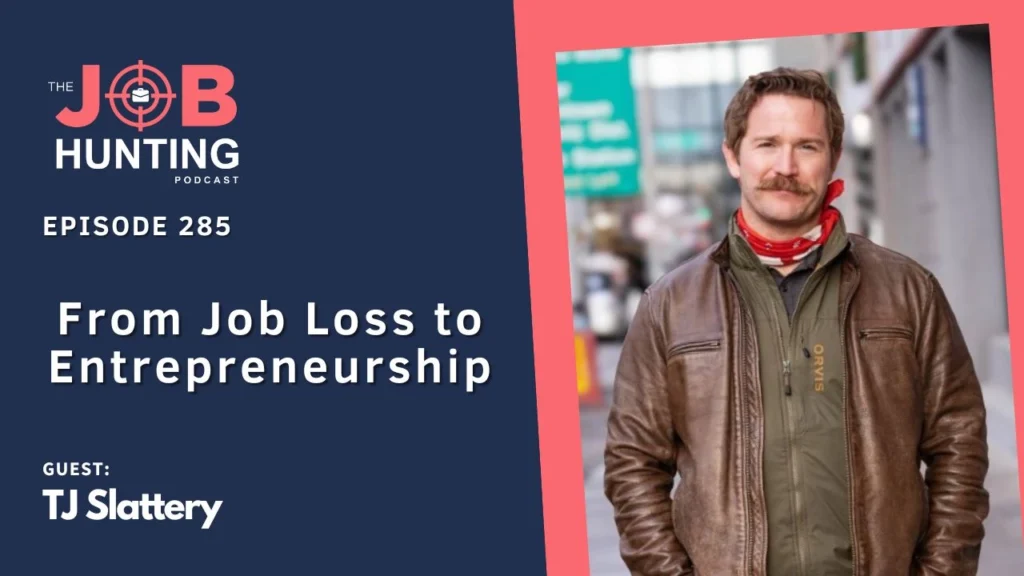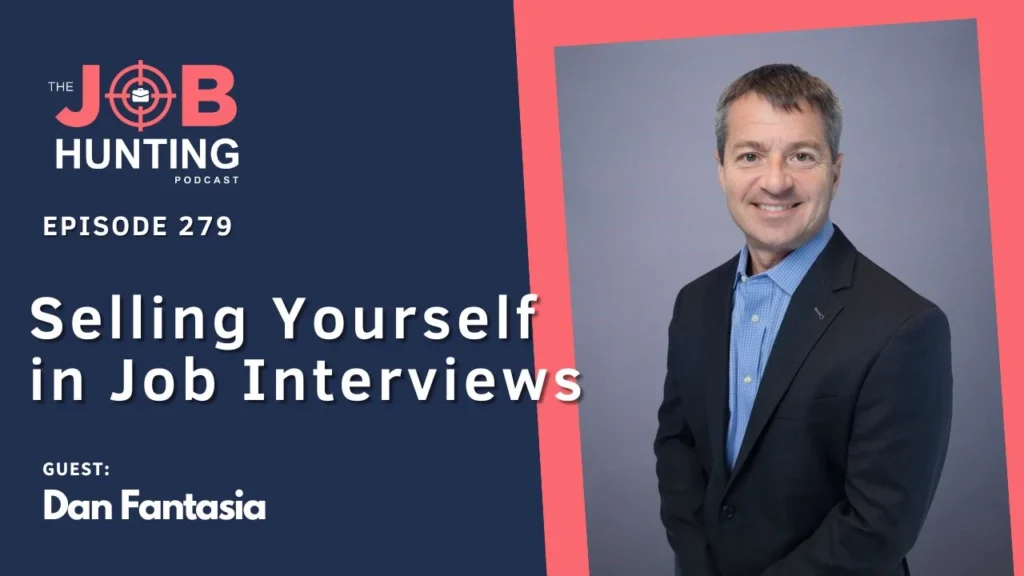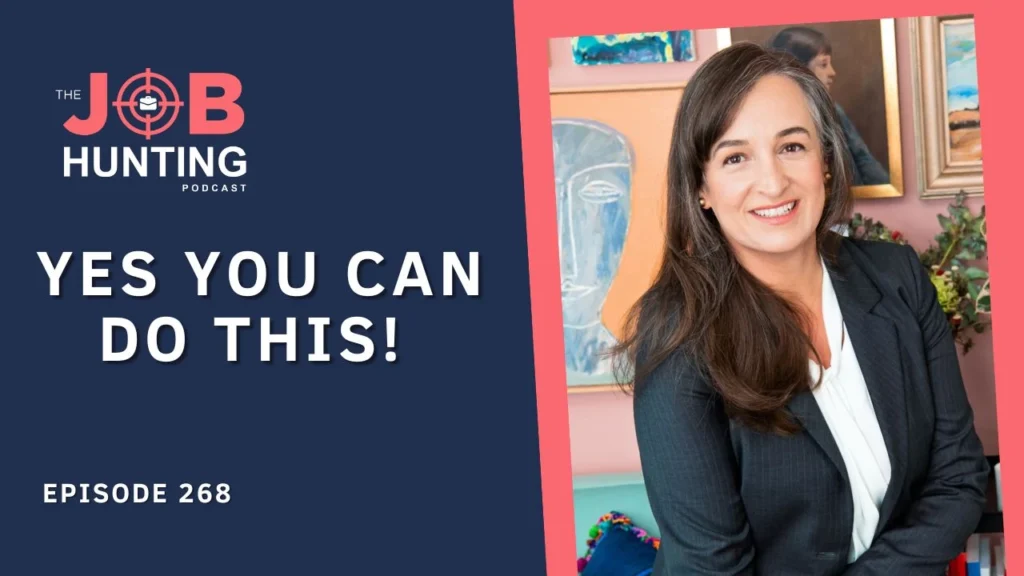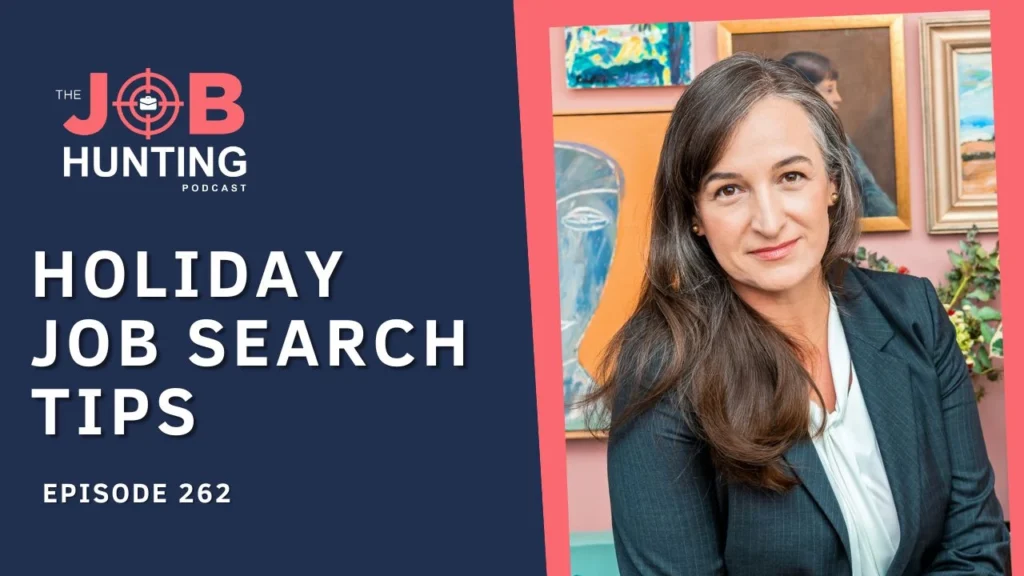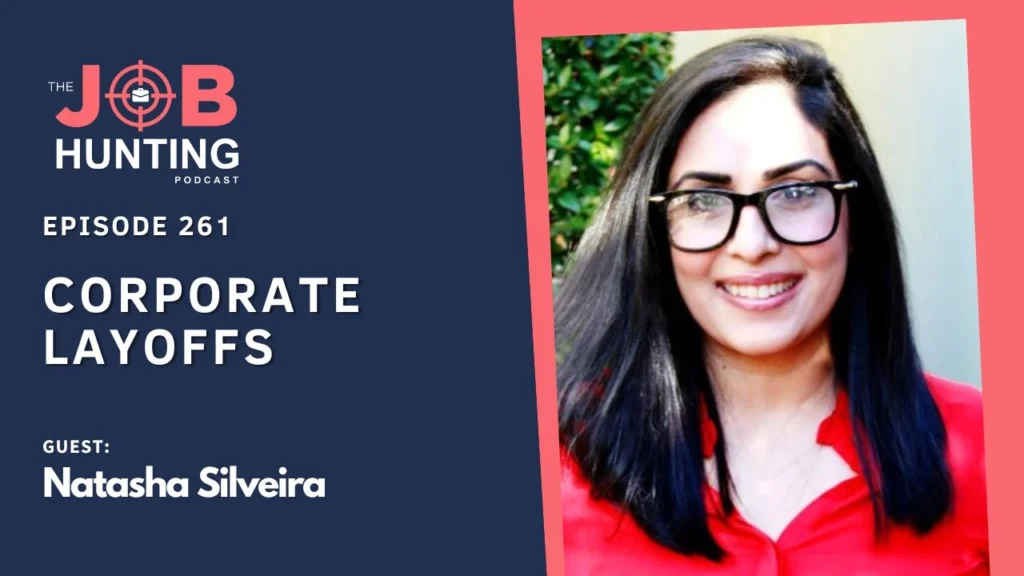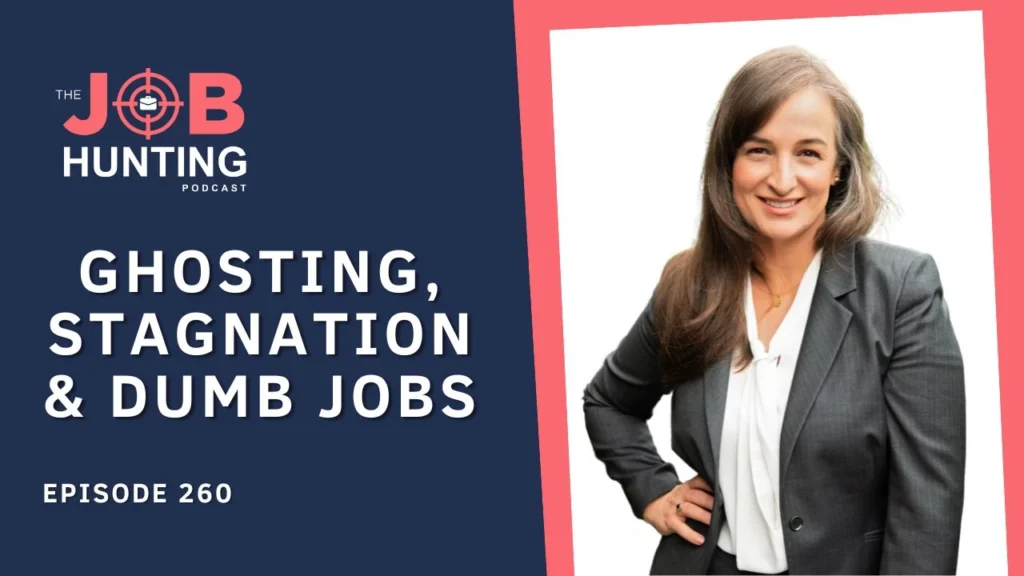What would people think if I don’t have a job for more than three months? I can’t live with that.
Today, we’re diving into a crucial topic for many of my clients: overcoming career blocks. My clients are a sample from all around the world, of corporate professionals in their forties, fifties, and beyond. This is a recurring theme, and it’s often the reason why people reach out to me.
Whether you feel stuck in your current role, uncertain about your next move, or doubtful about your career path, this episode is tailored to you. My purpose today is to help you navigate these challenges.
My episodes are informed by you—the listeners. I receive feedback through weekly newsletters, LinkedIn posts, articles, and many private messages. I hope this topic resonates with you, as it’s of great importance to many corporate professionals.
My ideal listeners are corporate professionals, located anywhere in the world. The majority of my listeners and clients are in the U.S., but I also have clients in the U.K., Australia, Asia, and the Middle East. While there may be some regional differences, the issues we discuss are universal. I find them recurring themes, regardless of location.
Recruiters often approach me with interesting ideas for my podcasts. It’s essential for me to have conversations with recruiters, as they provide valuable insights for both me and job candidates. If you’re a recruiter, please connect with me on LinkedIn—I’d love to hear from you! Recruiters are a great source of information, often sharing things they wouldn’t tell candidates directly. They can be honest, frank, and pragmatic with me, knowing that I’ll share their insights with my clients and listeners.
It’s summer down under, so I’ve left my office door slightly open. If you’re not familiar with my setup, you can also watch me on YouTube, as many of my recent episodes have video recordings. I’ve made a few changes over the summer, as it’s now January 2024 in Australia. You can listen to this episode anytime, but I always like to share what’s happening in my mind and my surroundings. There might be some noise, as it’s too hot to work with the door closed.
In the early days of my podcast, over four years ago, I used to pretend it was a fancy production. My loyal followers know it’s not! It’s recorded right here in my office, which you can see behind me on YouTube if you’re watching. You might even spot my gym gear and that picture on the floor needing to be hung. I want you to see this environment where I meet all my clients—it helps us feel closer. So go subscribe to my YouTube channel and take a virtual tour of my world, down under in Melbourne!
Many of my listeners are from overseas, which I love. Talking to people from all over the world is truly fulfilling. Interestingly, my downloads dip in December and January, while my follower count increases. I think it’s because regular listeners take a break during their holidays, while those newly focused on job hunting find their way to me. So, if you’re down under enjoying this beautiful summer, or back in the grind in the Northern Hemisphere, I hope you used your break to reflect on your career and your New Year’s resolutions.
I’m here to help! This conversation about career blocks is divided into nine segments, so be prepared to take notes. Notes are key—you’ll revisit them, reminding yourself of your goals and resolutions. You can always listen again, and at the end, I’ll recommend two additional episodes to delve deeper into this topic.
Let’s start by understanding why career blocks happen. Often, they originate in your head. You might catch yourself thinking, “I can’t do it,” “It’s too difficult,” or “It’s too late.” This self-judgment is common, and we all experience it. As a career coach, I hear these thoughts frequently, especially from mid-career clients. It’s often coupled with the fear of judgment from others: “What will people think if I change careers?” or “What will they think now that I don’t have a job?” We need to break down these thoughts and understand how they impact our career progression.
This is just the beginning! Stay tuned for the next segments, where we’ll explore specific strategies for overcoming career blocks and building a satisfying and fulfilling professional life.
They’re holding you back from connecting, fearing judgment and preventing you from pursuing your dreams. You have passions, purposes, those “what if” conversations inside your head. Even in your 40s, 50s, and 60s, you have time to explore those “what ifs” and make a great career transition.
We often underestimate the power of small steps. We want overnight change, but baby steps over 12 months can lead to incredible transformations. We’re poor at forecasting and understanding that small, consistent changes can take you from A to B, but it won’t happen overnight. Career development is about breaking down your goals into actionable, bite-sized steps.
This is about overcoming perceived career roadblocks. Let’s delve into strategies to help you move past internal hurdles. They aren’t real blockages, just internal hurdles. This applies to professionals who are beyond survival mode, have some financial stability, and perhaps more flexibility than they realize.
I once had a call with a professional unemployed for 18 months. He claimed he couldn’t afford coaching, but 18 months without income is a long time! My coaching investment is far less than one month’s salary, and it could accelerate his job search. He wasn’t strategically considering his options.
I’m talking to those with self-imposed blockages, not real financial hardship. If that person wanted to change careers, he could, due to his financial buffer and time. Many listeners likely have this privilege. Their blockages often stem from self-judgment (“What would people think?”) or the fear of others’ judgment. What’s stopping you from pursuing a fulfilling project that could benefit your entire career?
Of course, some face genuine challenges. I had a client call from his car, about to tell his kids they couldn’t afford their private school fees. That’s a real obstacle! My first masterclass focuses on making crucial life changes to withstand such career challenges. But often, the fear of judgment outweighs the actual problem. Ask yourself, “Am I doing this for myself or others?”
Intrinsic motivation, pursuing things that matter to you, is key to genuine career fulfillment. Extrinsic motivation, chasing things due to others’ expectations, often learned through schooling or career advice, might not align with your true desires. Maybe your family emphasized pursuing law or medicine, but you hate your profession. Now’s the time to tap into your passions and purpose.
In your 40s, you’re further away from those influences that shaped your early years. It’s the perfect time to reconnect with your intrinsic motivation. That’s the advantage of being older, everyone! Let’s utilize it.
I love interacting with you! While I enjoy live events, I’m considering live-streaming on LinkedIn this year. It would be fantastic to receive real-time feedback and questions. For now, DM or comment below if you’re watching on YouTube. I may be small, but I do read your comments!
Fear, including separation, abandonment, and lack of support, is a significant aspect of career blockages. This primal fear stems from our survival instincts, but our “lizard brain” hasn’t fully adapted to 2024. It thinks leaving your job means you’ll die, but that’s outdated thinking. Coaches, researchers, and even myself can help you “rewire” your brain and focus on your goals.
I hope this is closer to what you were looking for!
We need to write things down and create vision boards to remind ourselves of our goals daily. Otherwise, we tend to revert to our primitive brain function, which I sometimes call “lizard mode” or “monkey mode.” Remember, people will be there for you.
I recall being scared that people wouldn’t be there for me when I left the John Monash Foundation years ago. It was irrational. I received so much support from my network and former colleagues. Frankly, even if no one else is there, you must be your own best friend, right?
Having self-compassion and engaging in positive internal dialogue are crucial tools. You need to counter your “lizard brain” with this ongoing positive messaging. This is especially important if you’re between jobs, unhappy in your current role, or feeling stuck. You would never say horrible things to your best friend, so why be harsh on yourself?
Many of us impose strict deadlines on our career milestones. When I ask potential coaching clients how long they can last without a job, they often say four weeks or two months at most. Statistically, this is unrealistic, especially for professionals like corporate managers, financial controllers, C-level executives, and VPs. At the top of the pyramid, there are fewer advertised jobs, and the average waiting time is at least three months.
Recruitment for senior positions is also more complex than you might read about online. There’s no one-size-fits-all protocol, and the process can vary greatly between different jobs. This complexity highlights the importance of having support, such as a mentor or coach. Hiring organizations have resources like external recruiters and HR departments, while you’re expected to manage everything yourself. Consider seeking proper support to avoid losing potential benefits or salaries.
The fear of deadlines needs to be managed. We’re not the same 40-year-olds of 100 years ago. Instead of fixating on achieving certain things by a specific age, we need to discuss realistic goals based on your ambitions and the current environment. Your career will likely last longer than 20, 30, or even 10 years. I work with clients to re-engineer their goals. Some clients, even in their sixties and seventies, have continued working or remained involved in their sectors through various projects and roles.
Set realistic goals for yourself based on your ambitions, the environment, and your individual circumstances. Don’t hesitate to consult with others for more effective planning.
Maintaining an open mind is crucial, especially in the second half of your career. Young professionals are naturally open-minded due to the need to learn, but it’s equally important for experienced professionals to remain adaptable. This involves aligning your goals with the evolving world and leveraging your skills and experience to meet its needs.
A good example is transitioning from managing teams in a face-to-face environment to leading remote teams effectively. Complaining won’t help; embracing an open mind and acquiring relevant skills (through mentoring, courses, or observing successful remote managers) is essential. Remember, the world is changing faster than ever, and being open to growth and feedback is key to adapting.
I hope this revised version without segment titles is even more streamlined and helpful!
Now, change takes time. A year, months even. If you think about the same time a year ago, Chatty BT didn’t exist. And here we are now. How much have you used it? How well do you know how to prompt it? Right? You have to engage with these things because they are part of being a corporate professional. There’s no way around it.
In segment six, embracing personal change, I want you to accept that you have changed over the years. And when I do Talent Predicts (my strengths assessment test on Find My Talents, as a service I offer), we talk about your strengths, career drivers, and personal values.
Career drivers change over time. If you’re in your 40s, 50s, or 60s, they’ve likely shifted from your 20s. Recognize this and adapt your career and life to this new you. Have you reflected on where you are and if your achievements still serve you? It’s important!
I have a friend who transitioned from manager to expert professional, focusing her expertise in a specific area to excel for the organization. Adapting at this stage of her career allowed her to become a true expert, highly valued in her industry. That’s embracing personal change.
In segment seven, we address allocating time for career development. One way to overcome career blocks is to actually think about it actively. It’s not just sitting in front of a computer; that can lead to frustration and anxiety if you can’t think immediately.
Be patient! Remember taking baby steps? Train your brain to understand this is dedicated time for career reflection. Great ideas may come when you’re walking, showering, or doing dishes, when your brain is at rest and open to new perspectives. Always have something handy to take notes so those inspirations don’t get lost.
My phone works well for me – discreet and accessible even in the dark. Find what works for you!
When allocating time, consider my optimized job search resource with a timetable. Someone messaged me this morning loving it! It’s a goodie I still offer on my website. Versatility is key. Take notes, listen to my podcast, do a strengths assessment – mix it up until you find your flow.
Segment eight explores the power of writing and journaling. My “personal portfolio” journal system is designed for clients, but journaling is powerful for anyone regardless of profession. Great men and women of the past kept amazing journals, offering us invaluable insights.
Daily journaling brings clarity and focus. Write down your thoughts, goals, and plans. Bring this powerful practice back into your life!
Spent the past couple weeks traveling, and my brain was constantly buzzing with ideas. Couldn’t always write them down while with company, but managed to snag a few at the beach. Writing brings clarity and focus, while leaving things swirling in my head leads to anxiety and overwhelm.
Writing down your thoughts helps you understand what truly matters and refines your career planning. Embrace uncertainty! Having a safety net of food, shelter, and loved ones empowers you to take calculated risks.
Anxiety is normal, but shouldn’t control you. Dedicate time to tackling anxieties, then reward yourself with well-deserved breaks from the daily grind. Managers, prioritize rest! Burnout hinders your performance in competitive recruitment and selection processes.
Take a break, relax, and come back strong to handle the mental strain of job searching. Overcoming career blocks is a journey, not a quick fix. It’s about self-discovery, strategy, and resilience. Remember, your career path is unique, and it’s never too late for meaningful changes. You’re not alone; thousands share your struggles.
Subscribe to the podcast for over 200 episodes on various career issues. For career blocks, listen to episodes 197 and 192. Join me next week for an episode on navigating the complexities of the corporate world.


